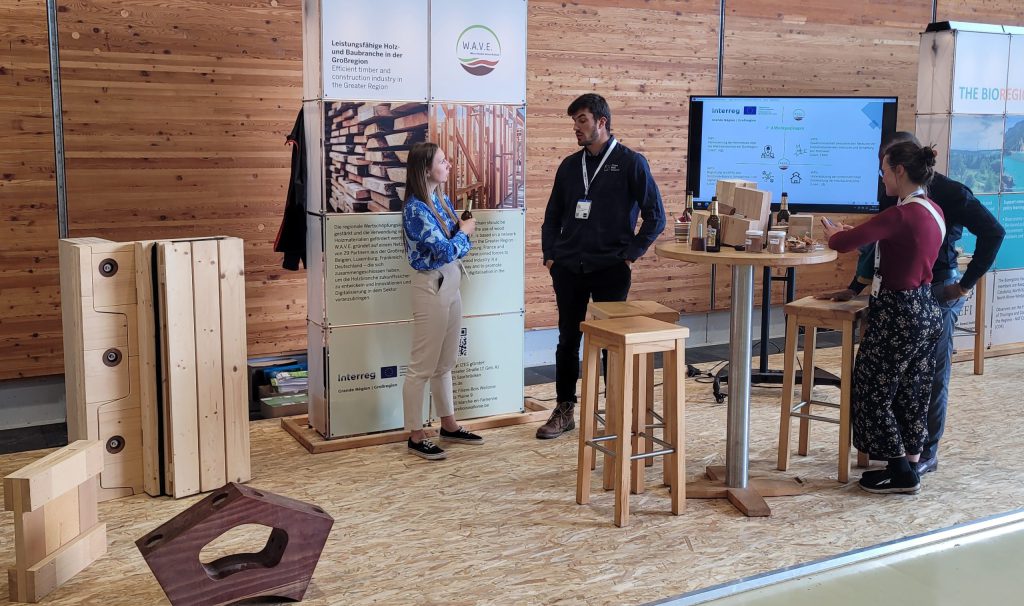The EU Regulation on Deforestation-Free Products (EUDR) is fundamentally transforming the timber sector: traceability is becoming mandatory and calls for new solutions. As part of the W.A.V.E. project, a hackathon brought together key stakeholders from across the Greater Region to develop innovative approaches for transparency, digitalization, and sustainability.
The EUDR requires companies to ensure full traceability of wood products—from the forest to the final product. Its goal is to prevent deforestation and secure sustainable supply chains. This presents major challenges for the industry, particularly regarding transparency, digitalization, and collaboration along the value chain.
To develop practical solutions, the W.A.V.E. project hosted a hackathon with around 30 participants from the timber sector in the Greater Region. Companies, digital experts, and associations worked together in workshops to generate ideas for implementing traceability.
Key Challenges
- Complexity of traceability, lack of harmonization, and high administrative effort
- Costs and resistance to change
- Concerns about data security and access
- Need for simple, practical solutions, as well as training and support
Opportunities and Potential
- Greater transparency and trust in the supply chain
- Sustainable forest management and promotion of the circular economy
- Innovation, competitiveness, and new business models
Proposed Solutions
- Trackin’wood: Raising awareness among non-digital companies, creating regional clusters, and offering tailored support
- Wood Track: Using QR codes for complete traceability from forest to product
- QR-Cost: Reducing costs through standardization, automation, and resource sharing
- Project Hêtre: Integrating ERP systems and IoT sensors for end-to-end transparency
Conclusion
The hackathon demonstrated that while traceability is complex, it also offers significant opportunities for innovation and sustainability. Collaboration, customized digital tools, and targeted support are key to successfully meeting the EUDR requirements. A follow-up workshop in autumn 2025 will further develop concrete prototypes.

